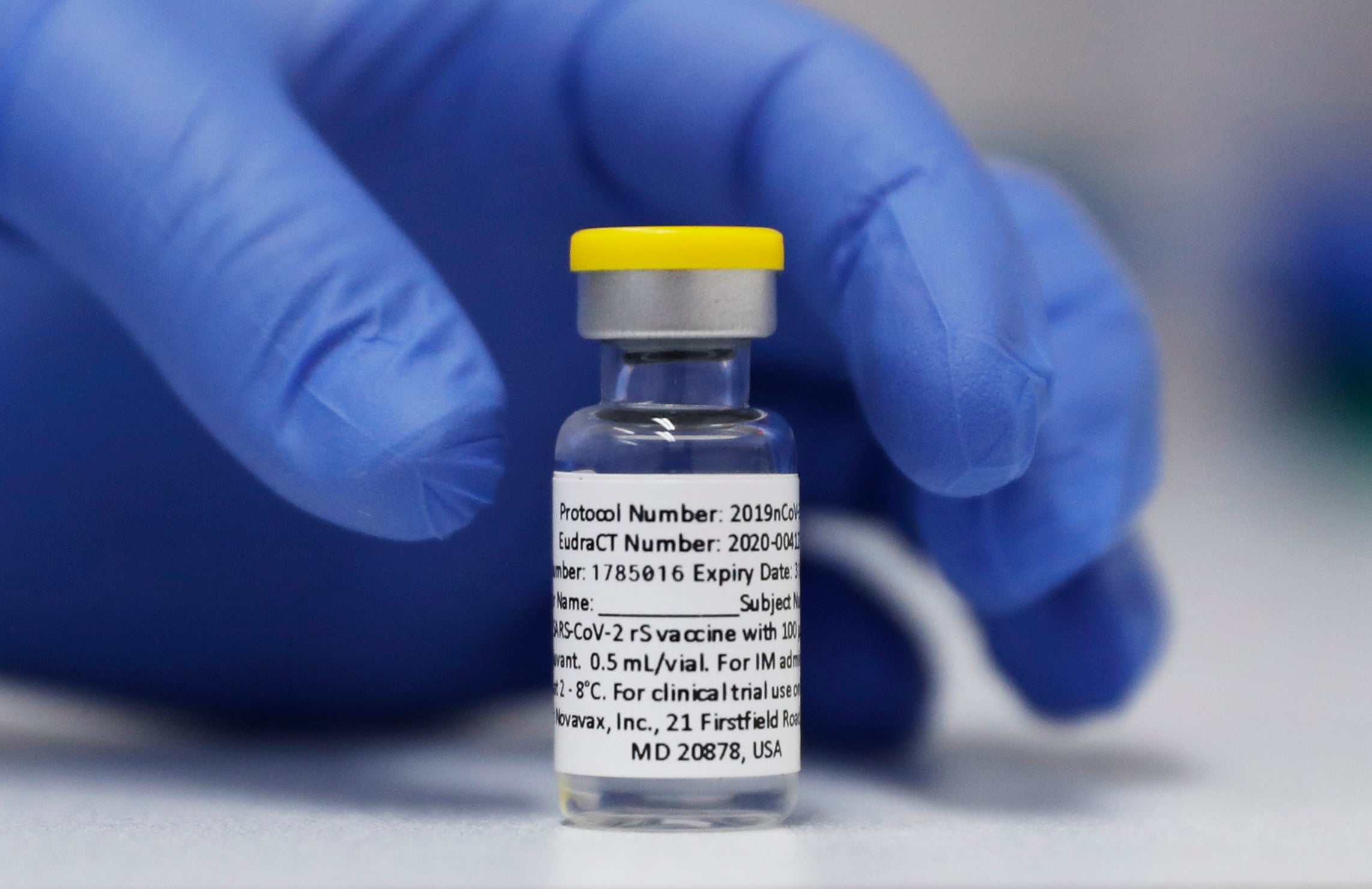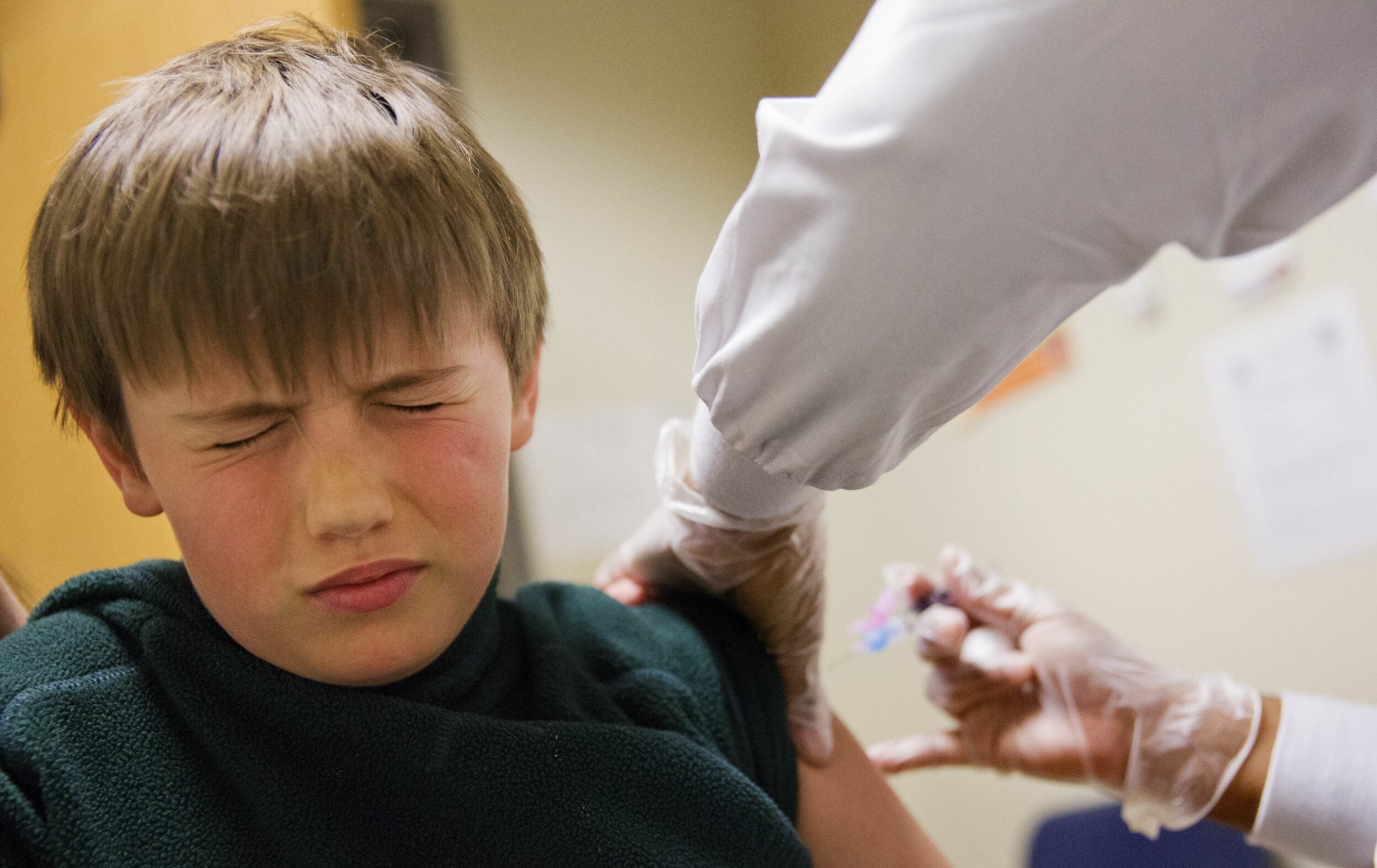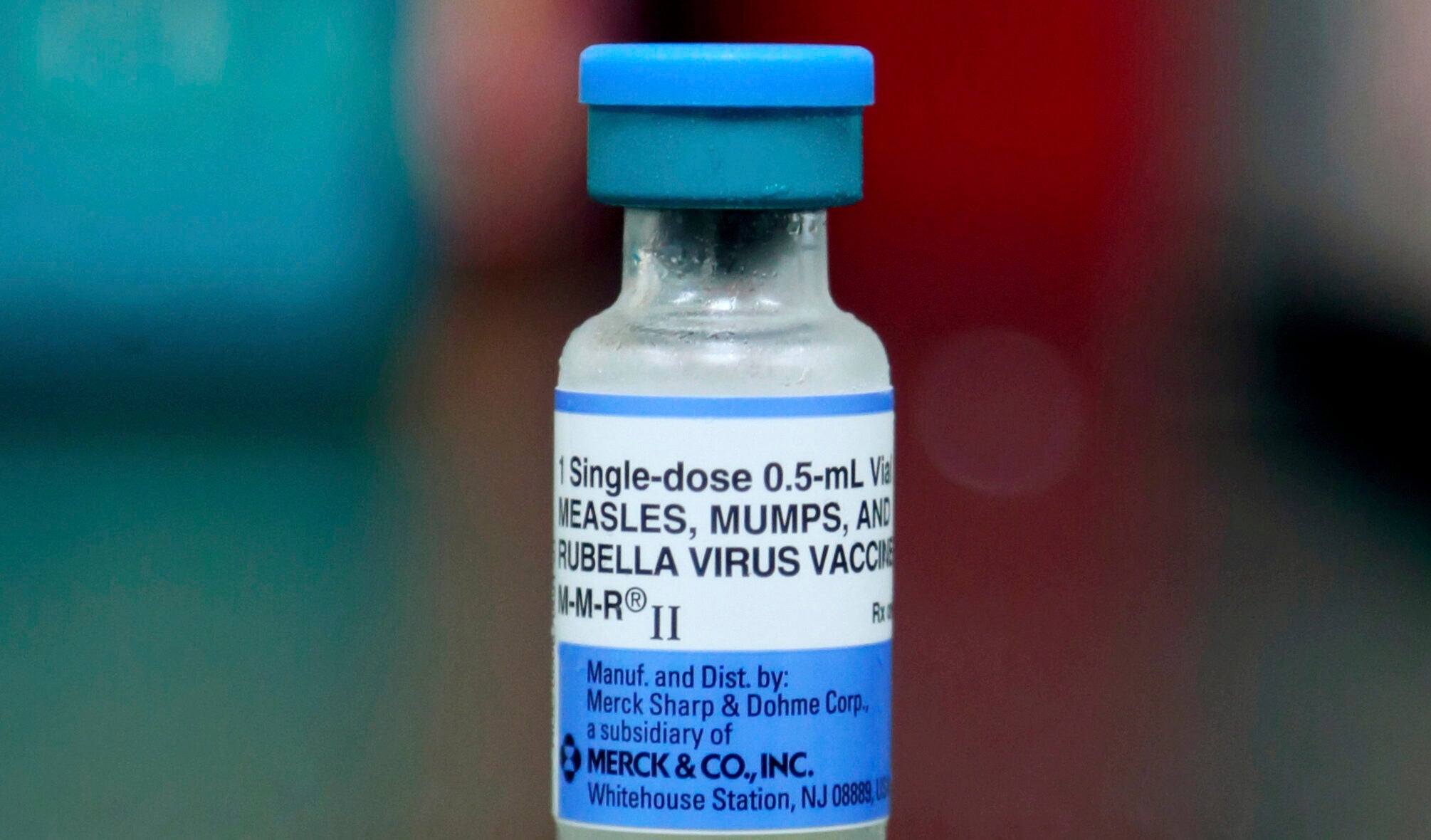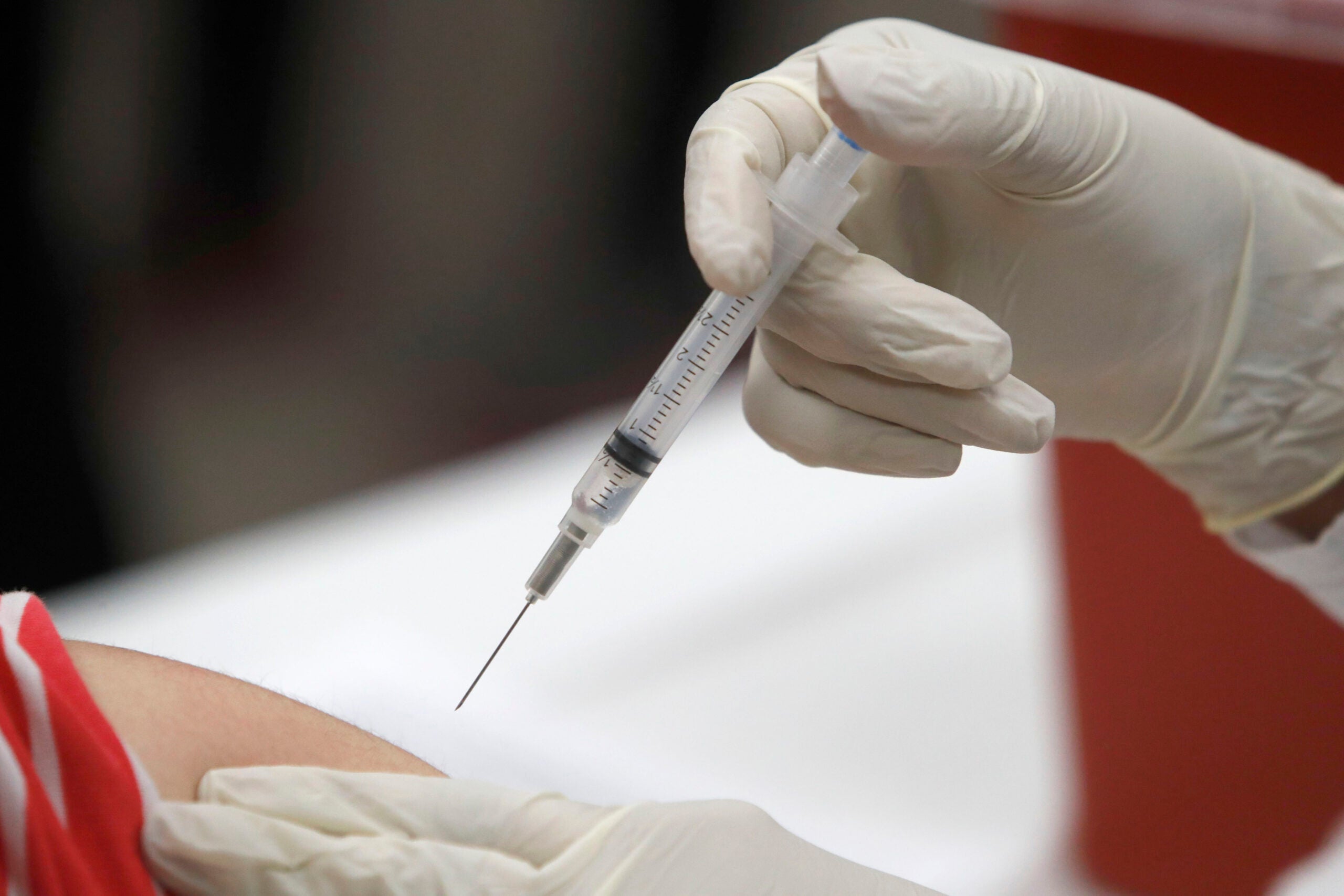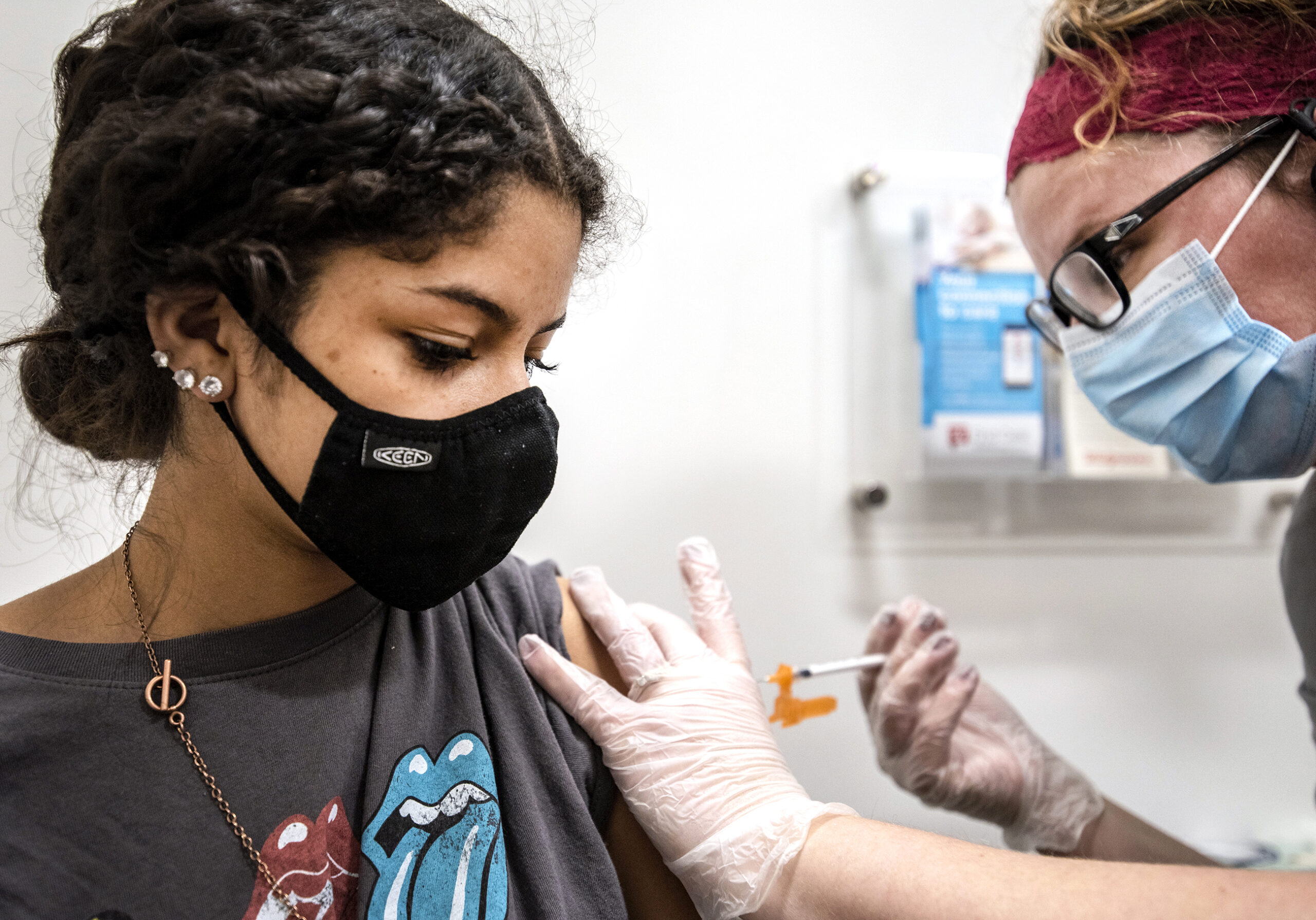A major hospital system in southeast Wisconsin will be requiring some employees who previously had an exemption to now be vaccinated against COVID-19.
Froedtert Health announced religious or medical exemptions granted to some staff would expire because of the availability of the Novavax vaccine, which was approved last month.
A written statement from the health care system said “(t)his protein-based vaccination option eliminates conflicts for those staff with religious or medical exemptions caused by mRNA-based vaccines and other concerns.”
Stay informed on the latest news
Sign up for WPR’s email newsletter.
Health care providers across the country required their staff to be fully vaccinated last year, in part because of a federal requirement by the Centers for Medicare and Medicaid.
But some people have objected to the mRNA-based vaccines from Pfizer-BioNTech and Moderna, as well as the Johnson & Johnson vaccine because of the use of fetal cell lines in their development, testing or production. A common practice in pharmaceutical research, these cells are grown in a laboratory but descend from cells taken from abortions decades ago.
A Froedtert spokesperson declined Wisconsin Public Radio’s interview request. But in the statement, the health care system said the change “affects a small percentage of staff with a vaccine exemption” and that eligible staff would continue to be exempt from the vaccine requirement for religious and medical reasons.
Paul Kelleher is an associate professor of bioethics at the University of Wisconsin-Madison’s School of Medicine and Public Health. He said he’s not surprised to see a health care system make the move to end exemptions for those who specifically cited the association with fetal cells. And he said more hospitals could follow suit.
“Health systems have an interest in protecting the health of their patient population, including patients who are medically vulnerable,” Kelleher said. “Reducing the incidence of COVID-19 in its staff is part of any health system’s effort to do that. So it won’t surprise me to see these changes.”
He said it’s hard to say how many of the employees who cited a religious exemption to the vaccine requirement will now get the shot. He said some individuals who cited the association with fetal cells may choose to cite another religious reason for an exemption.
“That doesn’t mean that the switch to citing another reason is disingenuous. It may just be that they had that reason and it’s not the one they originally cited,” he said. “Certainly a health system is not going to accuse its employees of being disingenuous. At most, they will just say, ‘Here’s the policy and if you don’t comply with it, then we will go forward with whatever sanction that we’ve advertised.’”
Kelleher said it is important to distinguish between people who have religious objections and those who are simply skeptical of the shot or who don’t trust the efficacy or safety of it.
He said some people may choose to leave their jobs with Froedtert because of the continued push to get vaccinated, but he doesn’t expect that to be a very large number.
“I think the most important thing here is that Froedtert needs to be extremely forthcoming and open about exactly what they’re requiring and why, and be prepared to respond to reasonable responses in a timely fashion if employees ask for clarification or continue to ask for further accommodation,” he said.
Wisconsin Public Radio, © Copyright 2025, Board of Regents of the University of Wisconsin System and Wisconsin Educational Communications Board.
